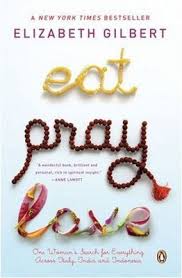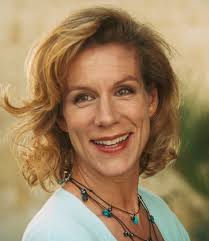The Signature of All Things strides across centuries, across science and across the face of God. It details (and I mean, really details) the life of the father, the daughter and the Holy Angel. It looks at our relationship to nature in a learned, scientific light. It’s a book, it’s big and it’s by Elizabeth Gilbert.
But I wasn’t paying attention to the writer when I began because I was drawn to the reader. I listened to this behemoth on Audible books read by the delectable tones of Juliet Stevenson. Ah.
If you have never had the pleasure of being read to by Ms Stevenson, may I recommend you rush to Audible for your introductory book and plug your ears into anything at all, say for instance, Middlemarch or Persuasion. I could listen to Juliet read the phone book and herein lies the problem, because I began to wonder if indeed The Signature of All Things might not in fact be a bit of a phone book. Juliet’s mellifluous golden tones seeped into my mind like a pleasant dream but once in a while I would be jumped out of the loveliness and mentally exclaim, ‘What is this stuff?’
Like Joyce, Gilbert is heavy on the lists. It sometimes feels as though she’s deliberately setting out to write an enormous masterpiece, covering a great sprawling canvas, and therefore she must conjure all the things that pertain to the thought she has in mind at that moment, that circumstance, that idea, that shade, that currency, that minutiae, that detail, that nuance, that secondary motif, that other thing that just might resonate with some reader somewhere because of something a second cousin once said at a wedding where she wore a beautiful dark dress with a large floral print in pinks and leaves but her shoes were too tight and she got a blister on her heel that took days to fade away and MEANWHILE back in the real world you’re starting to wish Ms Gilbert had found a slightly sterner editor and that maybe Juliet is reading the phone book after all.
There’s no doubting Gilbert’s steady and erudite construction of sentences and, apart from slight Americanisms like ‘pinky’ and ‘route’ most notable toward the end of the book, the prose is indeed suggestive of Elliot. In fact, and this reveals more about my lack of current popular knowledge than anything about Gilbert, I didn’t know who she was. It wasn’t until some way into the work that I looked the woman up. Der. She’s quite wise really.

https://en.wikipedia.org/wiki/Eat,_Pray,_Love#/media/File:Eat,_Pray,_Love_%E2%80%93_Elizabeth_Gilbert,_2007.jpg
So I went and borrowed Eat Pray Love (in that order) from my local library. The strands of this memoir are the concerns of the main character, Alma, in Signature. The corporeal, the spiritual and the emotional. That is to say, All Things. A lot of people really like it, apparently, and you might want to watch the movie. I shan’t dwell on ELP except to say it is based on Gilbert’s private journals and acts as a kind of miasma or swamp of the mind from which might grow a mighty lotus blossom. That blossom might well be The Signature of All Things.
Signature is an extraordinary vision and it features many real life characters like Captain Cook, Joseph Banks and Darwin. It could be that the story is based on a real person. The idea is not so far-fetched after all. A female scientist joins Darwin and Wallace in examining the world and seeking answers. There’s nothing preposterous in that. Female thinkers have been, like Alma’s moss, quietly gathering science ever since records began. Many have disappeared. Perhaps Gilbert found an account or diary somewhere that kicked this giant opus off?
There is much to ponder in Signature. There is much, full stop, much of everything really. It’s big, I tell you. An amazing feat. Alma is big, her father is a titan, her husband is an angel. Her view of God is not singular. Ms Gilbert really likes numbers and the basic trinity is always present (as are other numerological games in both ELP and Signature). Gilbert is an intellectual, after all. However, God is not in the moss. Heaven is not within. Heaven is somewhere else.
You might like Gilbert’s TED talk on creativity. She describes the need to separate artists from their muse – genius comes from outside. (Like God!)
Humans are part of nature – and her discussion of the development of the theory of evolution is even-handed and I welcome her embrace of Wallace. Although Bill Bailey on the subject is probably slightly more amusing.
I’m sorry I can’t be more conclusive about The Signature of All Things. I do love hearing big books, especially read by Juliet. I did enjoy many parts of this enormous blossom, this mossy roll, but in the end it did feel unsatisfying. Did it go on too long? Did it start too early?
It is amazing. That is all. It is about All Things. That said, I do wonder if Gilbert has been in communication with George Elliot’s muse?


